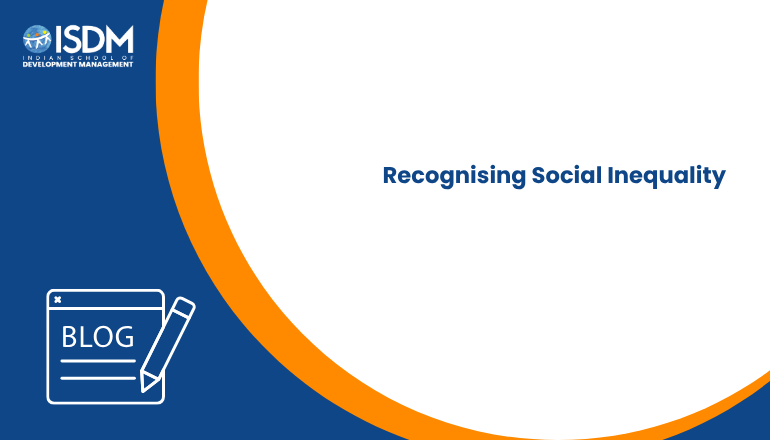Is Our Ignorance Towards Social Inequalities Killing Our Hopes Of Liberation?
David Menezes, student of PGP in Development Leadership at ISDM
This article has been originally posted on Youth ki Awaaz
While growing up, I always had, more or less, one stream of thinking – especially since I come from a middle-class family that protects its privileges and claims them as products of hard work and education.
There are so many social inequalities we are blind towards – simply because they aren’t a part of our lives. Hopefully, some of these questions will help you think of a world different from the one you’ve been exposed to.
We are living in a world with large and rampant inequalities – ranging from gender to religion to caste and every other unequal form. It is a problem that is not only too real but has also become the norm today.
But, is this norm something that I notice but never feel myself to be a part of? And do I feel the need to own up to a problem that I didn’t cause or start? Am I really willing to sacrifice myself in order to make things right? Can I be the one to stand and say, “I’ll fix what’s not my fight”?
Am I a problem-solver or just a bystander with opinions that are strong yet fickle, with actions never taken?
I used to be a strong advocate of capitalism. I thought that it was right – the idea that there can’t be a ‘not-for-profit’ without a ‘for-profit’ to give it light. Or the ideas that there is no welfare without capital accumulation and that there is no ‘fair distribution’ without income generation. Or the idea that survival will be left only to the fittest – with evolution and extinction wiping out our every weakness.
Are there parts of us we must let go of before we can move forward – not just changing qualities or character flaws, but abandoning the hope that’s already lost?
Is it possible for everyone to always make it to the ‘other side’? With a world that’s moving so quickly, I’m sure that some of us are bound to miss the ride!
Can we hold on to the ropes of fairness with development at the helm? I am still unsure of what progress means, and about which is better – the past or the present.
Are your goals more important than the people that you walk with? Would you sacrifice a person to win the prize, or would you rather forfeit? Would you be content protecting every right but not move forward?
Can you really protect the interests of every single son and daughter?
Can everyone’s liberation happen fast and all at once? Will everyone be liberated? Or will some rise and others fall?
Is saving yourself the goal of your life? Or can you save them all?




